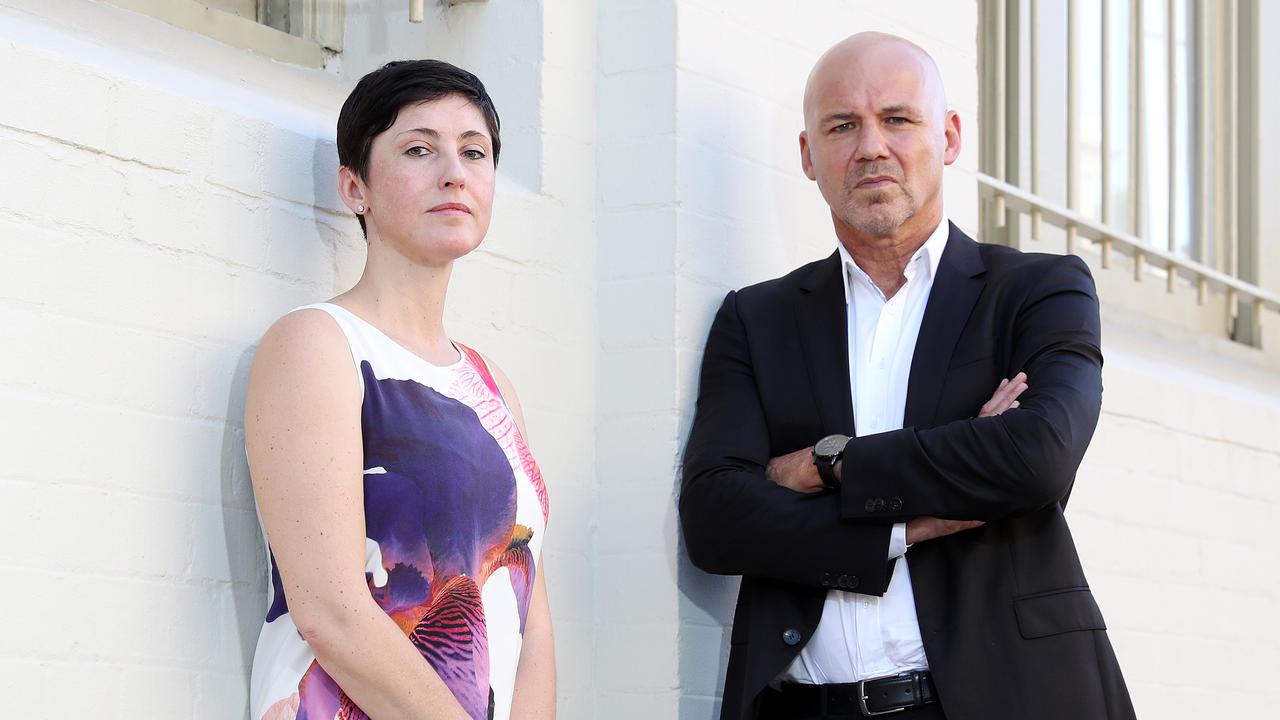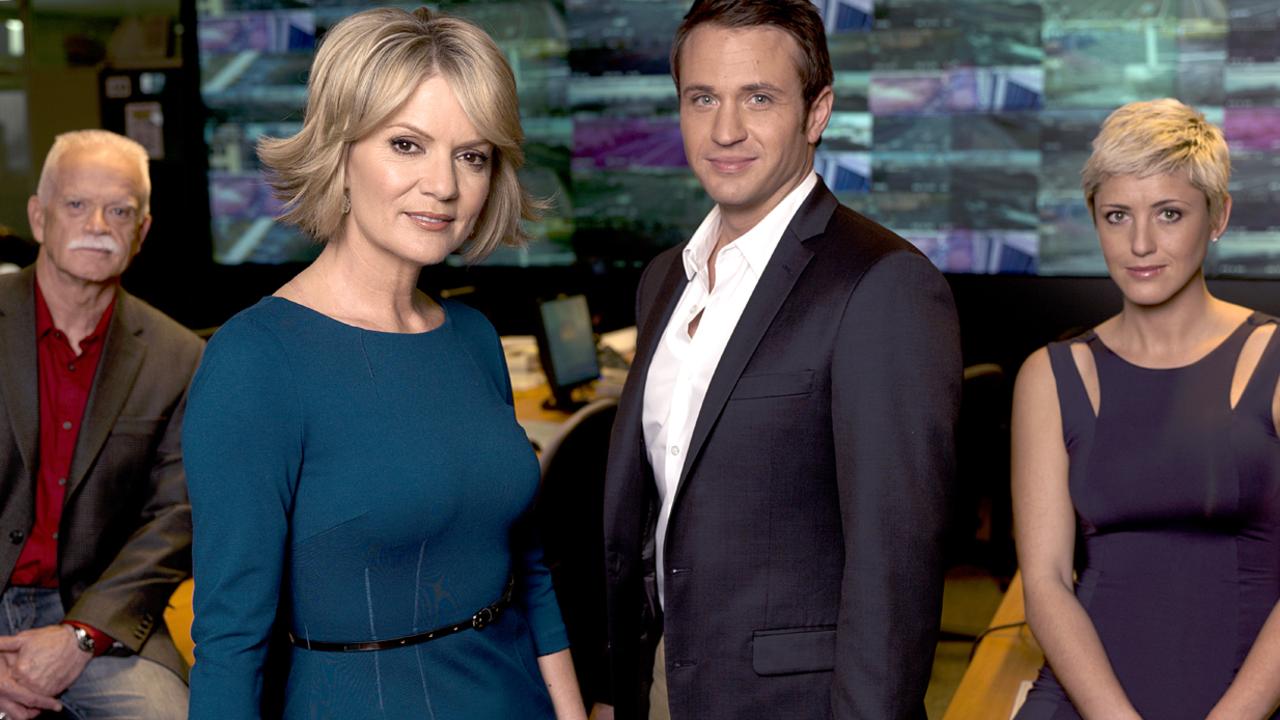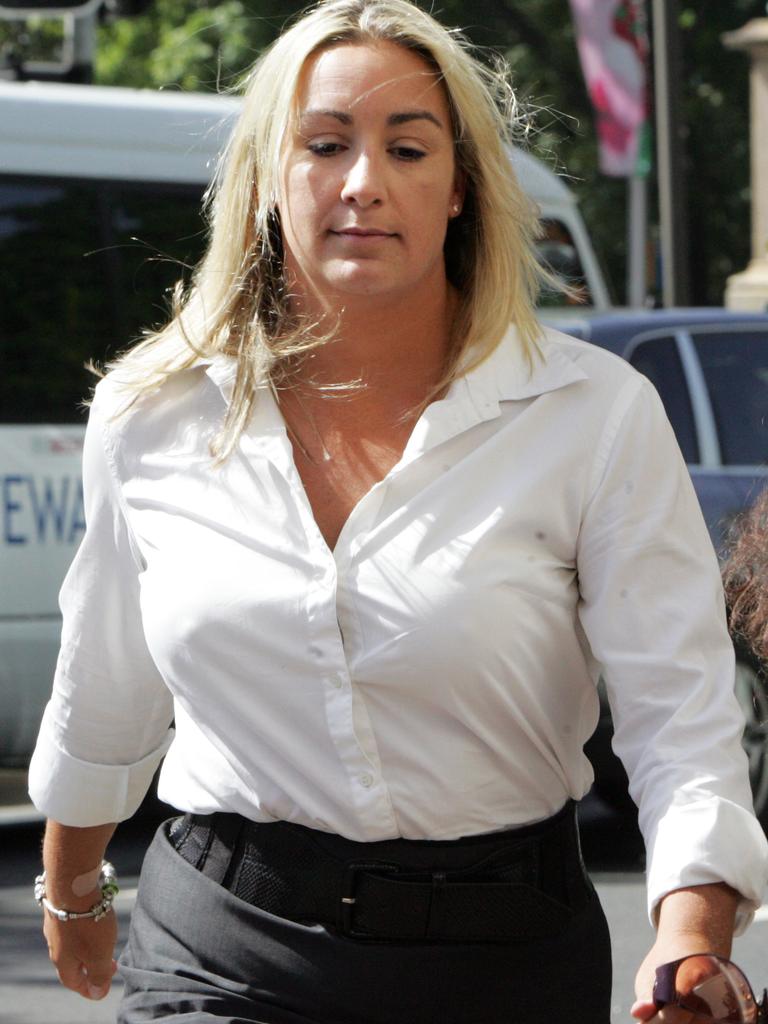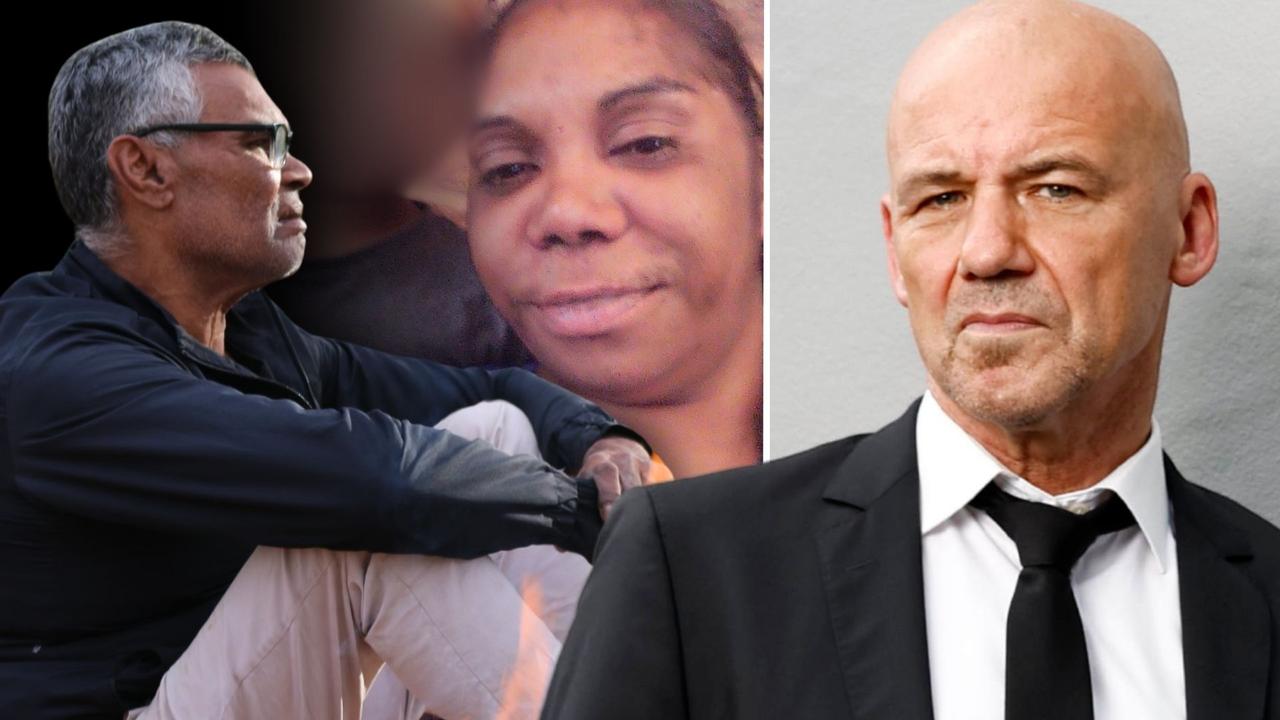I Catch Killers: How the world of crime fighting is changing
Male psyhopaths are the world’s most violent, predatory individuals but there are other types of psychopaths who could even be your doctor or lawyer.
During an early morning walk with her dogs on Good Friday Dr Xanthe Mallett was stunned when a flasher exposed himself to her in an isolated area near her home.
Having spent the best part of her career as a criminologist studying offenders and why they do the bad things they do, here she was confronted with one such perverse individual.
The clash between her working and private life didn’t escape her.
While Mallett says having her dogs meant she was confident of not being attacked, she knew better than anyone the risk profile of offenders and that they often start at the lower end of the spectrum with their crimes before progressing to something more serious.
EXCLUSIVE: As a subscriber you have early access to Season 2 of I Catch Killers with Gary Jubelin. Immediately below are Parts 1 and 2 of his interview with Xanthe Mallett.
Part 1 (above): The traits that make up a psychopath and the DNA technology that should have crooks worried.
Part 2 (above): Australia’s most notorious cases and the failures of the justice system.
“I was in an isolated area and I never had that experience before. ‘What a weird thing to do at quarter to seven in the morning’ was my first thought,” Mallett recalls to Gary Jubelin in the latest episode of the I Catch Killers podcast series.
“I didn’t feel particularly threatened because I’ve got a rottweiler and a (German) Shepherd with me. I was like ‘I wouldn’t come over mate because it’s not going to go well for you,’” Mallet said.
“But then I did report it because I’m fully aware of where that can escalate to. It may start at a low level but clearly that individual had waited. I didn’t think it was personal. He Just waited for a female on their own. And I thought that can escalate into the next woman who walks past him...she may be vulnerable.

“He was threatening actually. It was the eye contact that was the threatening part. Somebody engaging you in a sexual activity that you didn’t want any part of...that’s what got me.
“And I thought I may have felt different if I didn’t have my dogs. And I didn’t want any other woman to feel that.”
It was an understandably confronting experience for Mallett, but she knew more about that offender than he would have even realised.
Mallett is internationally renowned for her work across the behavioural science of criminology backed up by her work in hard science as a forensic anthropologist. Working out of the University of Newcastle she has also appeared on crime shows for the BBC and the major Australian networks while also writing three books.

So she cannot only tell you if remains found at a scene belong to an animal or human, Mallett can provide expertise on the events that led up to the crime.
She has researched and written about some of Australia’s worst crimes from the Ivan Milat backpacker murders (“I have no doubt there are others he has killed or harmed”) to the abduction of William Tyrrell on the Central Coast.
“I think (the person who abducted him) knew (William). (It’s not a place) where a child predator would go on the off-chance of coming across a three-year-old who just happens to be out of sight of their carers,” Mallett says.
It was during the early part of her career where she was helping police identify paedophiles using her skills in anthropology that she developed her interest in criminology, the factors that lead to crime and even the differences between male and female psychopaths.

“The most violent predatory individuals are male psychopaths. And so I just don’t think we’re as good at identifying women. But we know them. They’re the ones who love causing trouble, they’re very manipulative, psychologically, emotionally,” Mallett says.
“(There are) successful psychopaths. (They) may be business leaders, surgeons, pilots. They basically sometimes have that ‘God Complex’. They (believe they) can do anything because they have total belief in what they are and who they are.”
Mallett’s work has taken her to different parts of the world and she even had a chance to lecture to FBI agents at the famed Quantico in Virginia.
From appearing as an expert witness in trials to investigating body decomposition rates at the ‘Body Farm’ at a secret bushland location on the outskirts of Sydney, as well researching the latest in DNA technology, Mallett is at the forefront of criminology in Australia.

It is this expertise and a passion for justice that has pushed Mallett to broaden her scope and delve into the criminal justice system and what happens when it fails, leaving people’s lives ruined and families shattered. It is the theme of her most recent book “Reasonable Doubt’.
“Most people think that the criminal justice system gets it right. If somebody is accused of a crime, they’re probably guilty of that crime. And there aren’t that many innocent people in prison. That’s probably generally true but there are a number of people in prison who are genuinely wrongfully convicted and there are patterns of why that happens,” Mallett says.
“Some people are more vulnerable than others do when it goes wrong and they have less resources to fight it. They don’t necessarily know what their rights are and therefore (are) languishing in prison without a champion ready to fight their cause. That worries me that these individuals are in prison and they have no recourse.”

Rich, white people experience a different justice system to the rest of society, says Mallett.
“(The legal system) is about justice but some people say it’s a game...you’ve got barristers that want to win at all costs because it’s about them, it’s not about the case, it’s not about the right person going to prison.”
Mallett has taken what would be considered by many, a controversial stance on the convictions of Keli Lane and Kathleen Folbigg.
Lane was sentenced in 2010 to 18 years jail for murdering her unborn child Tegan while Folbigg is serving a 30 year sentence for the murder of three of her children and the manslaughter of a fourth.
“People always want to know (if) I think Kathleen Folbigg is guilty or innocent. I’d always say it’s just not the point. My personal opinion is totally irrelevant,” Mallett tells Jubelin.
“Beyond reasonable doubt is our legal standard in criminal investigations. And in my opinion, there are question marks over the death of those children, that there are potentially natural causes that could explain those deaths.


“Certainly all of the children had health conditions before they died and there was never any evidence that she’d committed any harm to those children, they didn’t show any injuries. Nobody ever saw her injure them.
“And the thought that four children within a family (dying of Sudden Infant Death Syndrome), what’s the likelihood of that happening? Well we’ve got historical records to demonstrate that once you lose one child sudden infant death, you can actually be predisposed for environmental, genetic, etcetera reasons to lose more children.
“So it’s certainly not a one off event that it was kind of painted as. In families, similar to the demographics of the Folbiggs, multiple children have died. And so that’s where I come at it from my personal opinion, irrelevant.
“I am concerned that the children died of natural deaths and somebody is in prison has been wrongfully convicted.”
Mallett understands her stance on Folbigg might not be popular but that didn’t mean she shouldn’t argue the cause even if it came with a backlash.
“You’ve got to be quite brave to raise some of those questions because when these women are potentially still in prison, like Keli Lane and Kathleen Folbigg, to actually say I think there could be problems with the evidence here, you’ve got to step up.
“It’s very emotive and people generally kind of vilify these women. So it can be an emotional, psychological challenge for some people to accept that they may not, in fact, be guilty. But someone has got to be willing to stand up and ask those questions.”
For Mallett it is the development of a National Criminal Investigation DNA Database that is exciting the criminologist within her and its ability to possibly crack cases that police thought might never be solved.

I CATCH KILLERS PODCAST
Episode 1: Haunted by fatal shot – Police sniper Brett Pennell
Episode 2: World’s post in-demand policeman – Former top cop Nick Kaldas
Episode 3: Hardcore cop, novelist and Page 3 model – Karen Davis
Episode 4: Mysterious death of soldier Jake Kovco – Wayne Hayes
Episode 5: How top cop spoiled bikie party –Deb Wallace
The cutting-edge technology is moving at a rapid rate and has evolved to where a facial likeness can be created from just a cheek swab of DNA.
“(It’s) not a photograph of what you look like, it’s a prediction of what your DNA suggests you should look like based on thousands of thousands of DNA samples compared to thousands of thousands of images.
“(It’s) an interpretation of exactly what each bit of DNA says about the way you look. So that could be your eye colour, your hair colour, how many freckles you have, your nose shape, your ear placement.
“And so we can now use that to predict what a person of interest may look like from a blood sample. A scene may have no witnesses, no CCTV, nothing else. So we can still create a facial likeness of that person that the police are looking for.”
It’s going to transform police work with the obvious result that the chances of being caught are going to rise exponentially.
Soon, all it is going to take is a fingerprint left at a scene to generate a modern-day identikit image of what the offender looked like.
Even with Mallett’s obvious enthusiasm for the technology, justice should never be served on relying on this single type of evidence, she adds.
For Mallet it’s all just one more piece in a complicated puzzle of evidence in a never ending quest for justice.
Originally published as I Catch Killers: How the world of crime fighting is changing


